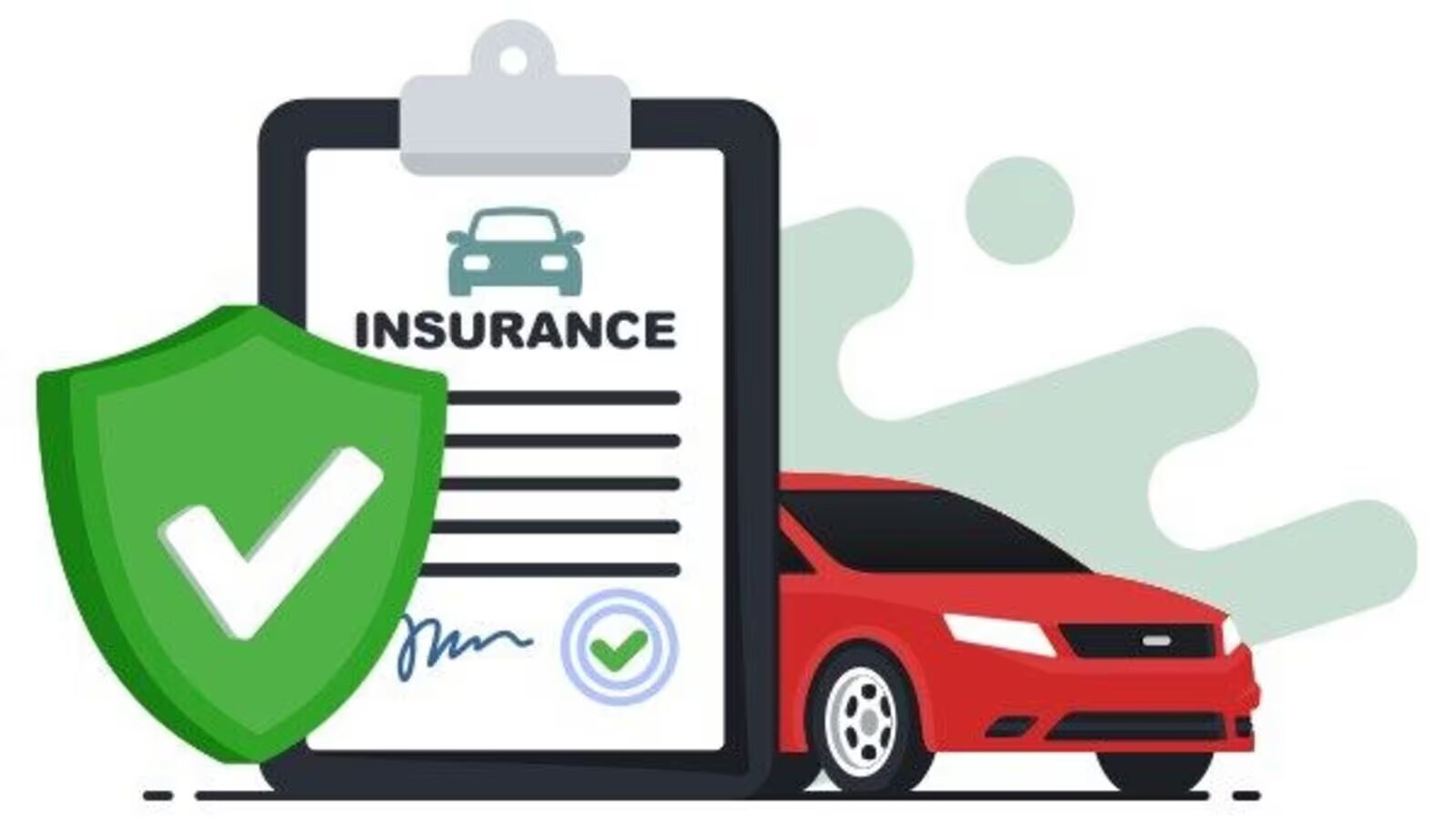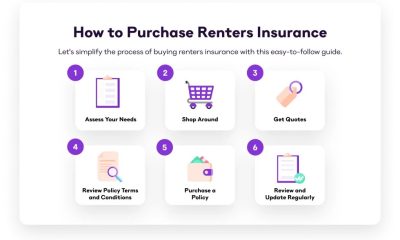Insurance
Cheapest Car Insurance Companies In UK

When it comes to insurance, all drivers want to get the best coverage for the lowest price. It’s hardly shocking that car insurance premiums are so high. According to the Association of British Insurers, the average auto insurance premium would rise 12% in the fourth quarter of 2023. The ABI says the rise reflects increased repair and replacement car prices.
So, which are the market’s lowest insurance brands? That’s a tricky question to answer because, although one insurer may offer a competitive price to one driver, another may charge a far higher premium. The samples below provide a picture of which insurers are the cheapest under specific conditions
The best cheap car insurance of 2024
While the team was unable to compile a definitive list of the ’10 cheapest auto insurance carriers’, however did conduct a spot check (February 2024) to determine which insurers performed best for three different driver profiles; you can learn more in our methodology section below.
Driver One: A 21-year old teacher driving a Fiat 500 Lounge Twinair 105 (2018) with a market value of £5,000. Lives in Brentwood, Essex.
Driver Two: A 45-year-old married engineer drives a Nissan Qashqai (2018) worth £14,000. lives in Blackburn, Lancashire.
Diver Three: A 65-year old retired individual driving a Mercedes-Benz, B220d Sport Executive (2023) with a market value of £29,000. Lives in Dundee, Scotland.
How can I cut the cost of car insurance?
There is no way to avoid automobile insurance – and we explain why in our FAQs below – but the good news is that there are several methods to reduce prices while maintaining coverage. Here is the roundup.
- Compare insurers
Because car insurance is priced based on risk, it is critical to compare multiple insurers and policies from across the market when your existing policy is due to be renewed. Switching insurers is quick and easy. You can obtain all of the information from your current insurance online, and a printer is not required.
When searching, keep in mind that certain insurers specialize in specific markets or categories of drivers, such as those who have recently passed their test.
- Time it right
According to industry experts, the price you pay for new car insurance can vary depending on how close you are to your renewal date. Premiums are generally regarded to be at their lowest between two and four weeks before your renewal date, so scheduling your renewal correctly could save you money.
The notion is based on simple market forces: the closer you approach to your renewal date, the more likely you are to make the purchase, which allows insurers to raise their rates.
- Increase the excess
The compulsory excess is the initial element of an insurance claim that the policyholder must pay. Car insurance premiums can range from £50 to £200, for example. However, it might be up to £1,500 if an insurer want to compensate for a low premium.
Insurers frequently provide clients the option of increasing their excess – known as a voluntary excess – in order to reduce their rate. While increasing the excess may make financial sense in the near term, it implies the policyholder is taking on more risk; if you need to claim, you will have to pay more.
- Dump unnecessary extras
When searching for car insurance, you will come across a number of ‘optional extras’ that may be added to the policy for an additional fee. Examples include a courtesy car (if your automobile needs to be repaired as a result of an accident), legal charges, key insurance, breakdown coverage, and windshield coverage.
If you can do without these additions, you should be able to reduce your premium cost. You may already have independent breakdown cover, possibly as part of a packaged bank account.
- Add a named driver
Sometimes adding another driver can reduce the cost of insurance. However, this will be determined by their driving record and any claims history, with experienced and older drivers being more likely to have a reduced price.
However, be aware that fronting, in which an older, more experienced driver falsely declares oneself as the primary driver in order to minimize the premium, is unlawful. The first named driver on an insurance must be the person who drives the car the most.
- Reduce mileage
Car insurance rates are determined by the risk to the insurer, therefore the more miles you drive each year, the greater the danger of an incident or accident. Reduce the number of miles you drive to save money on insurance; shorter trips that may be walked may be a good place to start.
- Fit security devices
Many insurers may reduce the cost of coverage if you have security equipment installed in your vehicle, such as immobilizers and alarms. To qualify, these are typically limited to specific makes and models.
- Consider telematics
A telematics policy, which is often marketed at young or inexperienced drivers, includes the installation of a telematics box – or black box – in your vehicle, allowing the insurer to monitor your driving. App-based policies are also accessible.
Typically, the motorist agrees to a particular annual mileage limit and refrains from driving between certain hours (11 p.m. to 5 a.m.), for example, when the insurer believes more accidents are likely.
The telematics box, or app, then records information about the policyholder’s driving habits, including as speed, acceleration, and braking, as well as how frequently and when they drive.
You will receive a driving’ score’ that reflects how safely you drive on a consistent basis. If you maintain a good score, your future premiums will be lowered frequently during the policy’s term, resulting in a lower cost for your coverage.
Pay-as-you-go insurance is an alternate option for automobile owners who do not drive frequently and can be less expensive than a conventional coverage. Typically, the insurer will charge you for insurance based on how far you drive, such as by the mile or the hour.
- Buy a cheaper, less powerful car
The value and engine power of your vehicle will have a significant impact on the cost of auto insurance. Insurers classify cars into insurance groups numbered 1 through 50 based on a variety of variables such as its worth, performance, and any security features, as well as the cost of components and repairs.
More powerful and expensive car brands and models are likely to be in higher ranked groups, as they normally cost more to repair (or replace if stolen). The higher the insurance group, the more expensive the insurance.Consumers who wish to keep auto insurance costs down can consider purchasing a less powerful vehicle.
- Park off-road at night
Where the car is parked, both during the day and at night, might affect the insurance price. If you have a driveway or garage, making sure you use it for your car might reduce the risk for the insurer and so lower your premium.
Parking your car in a secured garage at night is likely to be regarded as the lowest risk alternative, which could have a significant impact on your insurance price.
- Pay the premium annually
As stated in our quotes (above), paying your annual premium in one lump sum upfront is more cost effective than splitting it into monthly installments.
Drivers who can budget ahead of time and have the cash available when it comes time to renew are more likely to save money, whether they stay with their current insurance or move.
- Haggle with your insurer
As your renewal date approaches, and you’ve looked for new options throughout the market, contact your current insurer to see if they can beat the best new quotation you’ve received.
Often, insurers may match or beat a price, lowering their first renewal quote in order to retain your business. While industry regulations now prohibit insurers from charging current customers more at renewal than they would to an equivalent new client, there may still be savings to be had by discovering a cheaper insurance from a competitor, which you can then use as a bargaining chip.
- Car cover and location
While there are numerous methods for lowering the cost of car insurance, there are some elements over which you have no control. The table below displays the average auto insurance cost by region (October 2023).
Cheapest isn’t always best
However, drivers should avoid choosing insurance solely on price. While pricing is usually the main concern, examine coverage levels, which vary greatly.
A inexpensive policy may include a high obligatory excess or many exclusions, which could cost you more in the long run. It may be your preferred option, but make sure you know what you’re purchasing.
LV= General Insurance underwriting director Alex Borgnis says: “Cheaper policies often have higher fees and charges or limited cover, which means you may pay more in the event of an accident. Some may not give enough coverage for your needs, leaving you liable to financial loss if you claim.
“Misfuelling the car, which can damage the engine and be expensive to repair, while child seats may not be covered.”
The driver should also evaluate customer service and claims records. Fairer Finance has star ratings for various vehicle insurers. Finally, the lowest policies may not provide good customer service, leaving you to handle accident aftermath alone.
FAQs
- Do I have to get car insurance?
All UK cars must have insurance. The minimal legal coverage is compulsory third party insurance. Third-party insurance protects the policyholder from harm to others’ property, vehicles, and passengers. You’ll be insured if you damage someone else’s automobile or injure other drivers or passengers. Third-party, fire and theft, and fully comprehensive car insurance are optional but worthwhile.
- Third party: fire and theft: Includes cover for damage the policyholder causes to other vehicles, drivers and passengers, plus cover for theft of their own vehicle and any damage caused by theft or attempted theft and by fire
- Fully comprehensive: This is the highest level of insurance and covers the policyholder for third party, fire and theft as above, plus any damage caused to their own vehicle.
Do I need insurance if I’m not using the car?
If you keep your car off the road, don’t use it on public roads, and have a valid Statutory Off Road Notice (SORN), you don’t require auto insurance.
- Does car insurance automatically renew?
In the United Kingdom, insurers typically renew coverage automatically so that you do not go uninsured by accident; you are asked to agree to this when you purchase your policy.
As your policy approaches its expiration date, your insurer will provide you a price for the new policy as well as information on how to cancel your coverage if you do not want it to renew. If you do nothing, you will be renewed at the quoted price.
- What are car insurance groups?
There are numerous criteria that influence how inexpensive or expensive your cover will be, including which of 50 groups it falls into. The insurance sector manages these groups, and each car on UK roads is assigned one based on characteristics such as performance capabilities and replacement part costs.
All other things being equal, a group 1 car would be the cheapest to insure, whilst a group 50 vehicle with super high performance and great value would be the most expensive. As a rule of thumb, the lower a vehicle’s classification, the less it will cost to insure.
- What does legal cover mean?
If you were wounded or left out of pocket as a result of an automobile accident that was not your fault, you may want to file a lawsuit against the responsible party.
On the other hand, someone may sue you for causing damage to them or their property. Legal cover covers for solicitors’ fees, so you don’t have to worry about the cost. A successful legal case could reimburse you for your excess, cover any lost earnings due to injuries, and compensate you for property damage.
- Can car insurance be transferred to a new car?
You can ask your insurer to alter your policy to cover a different car, but you can expect to pay a modest administration cost as well as potentially higher premiums.
- Does car insurance cover driving in Europe?
Most car insurance policies will cover you to drive in Europe, but only for third parties. This implies that, while you will be insured for any damage you cause to others and their property, your own vehicle will not be protected. For optimal coverage, consider adding European driving cover to your policy.
Source: Forbes Advisor










